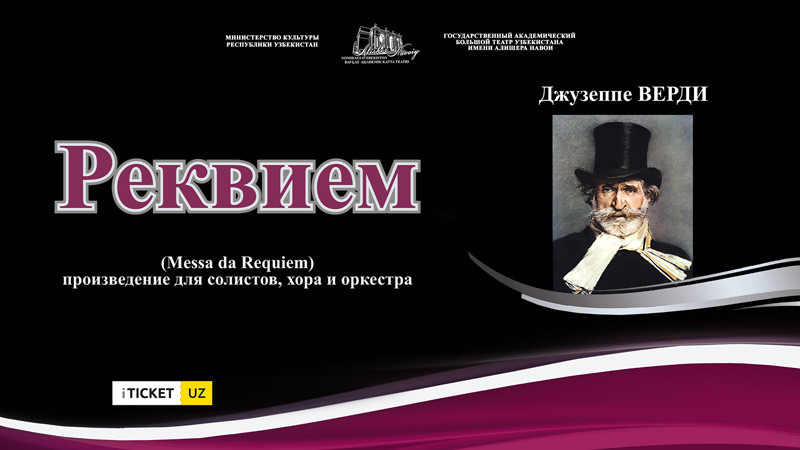
About event
(Messa da Requiem) a work for soloists, choir and orchestra Requiem (from Latin requies “peace”, “rest”) is a high genre of concert music, a kind of mourning oratorio. It is called by the initial words of the introit "Requiem aeternam dona eis, Domine" ("Give them eternal rest, Lord"). Verdi's Requiem (Italian: Messa da Requiem) is a work for soloists, choir and orchestra by the Italian composer. Verdi completed work on the Requiem on April 10, 1874. The first performance took place on May 22 of the same year, in Milan's St. Mark's Cathedral, the author himself was behind the conductor's stand. A few days later, the Requiem was performed with great success at the La Scala theater, just as successfully in 1875, under the direction of the author, the premieres were held in Paris, London and Vienna, and then in Munich, St. Petersburg ... According to the composer himself, he initially took for the sample Requiem in C minor by Luigi Cherubini, a choral composition, without soloists, in which the orchestra as a whole plays a rather modest role - however, in the process of work, Verdi departed far from this model: in his Requiem, in addition to a large four-part choir and a full-fledged symphony orchestra, there are four soloists - soprano, mezzo-soprano, tenor and bass. In style, numerous ariosos and ensembles - duets, tercetos and quartets - with a truly Italian operatic cantilena, Verdi's Requiem is more reminiscent of his later operas, primarily Aida, than the work of Cherubini and his other predecessors. The role of the orchestra in this Requiem goes far beyond mere accompaniment. In Europe, Verdi's Requiem won the audience immediately, according to eyewitnesses, he was applauded violently, demanding the repetition of individual numbers. At the same time, outside of Italy, the attitude towards the Requiem in many countries was, and partly still remains, ambivalent: it is perceived as an opera rather than a spiritual work, and is performed as an outstanding musical drama; up to the fact that the Requiem, like an opera, is divided into “act one” and “act two”. The universal significance of the main lofty idea of "Requiem" as an oratorio-memorial is consonant with our high veneration of the numerous heroes and victims of the Second World War. And on the eve of the Day of Remembrance and Honor, the tragic and enlightened sound of G. Verdi's masterpiece is especially significant and symbolic.
Age restrictions / Language










